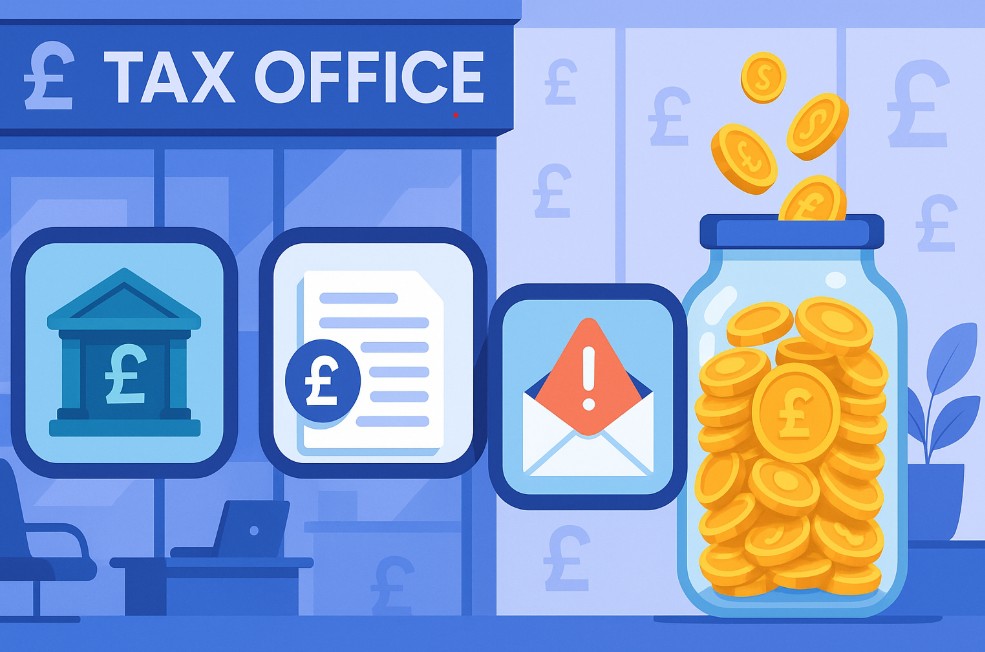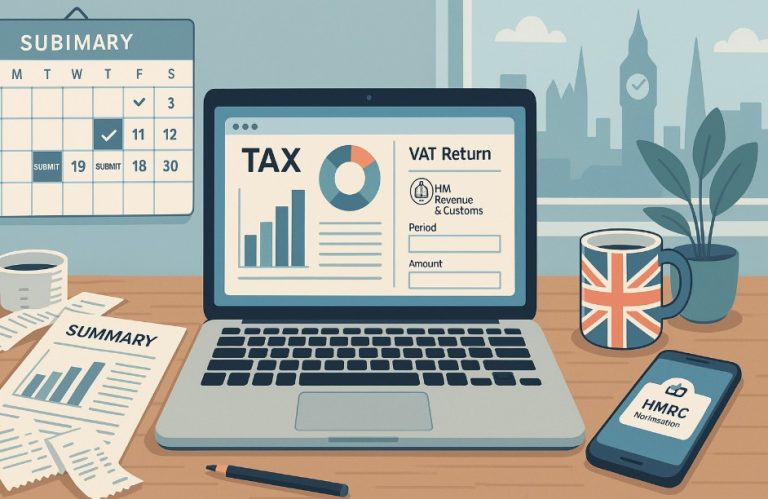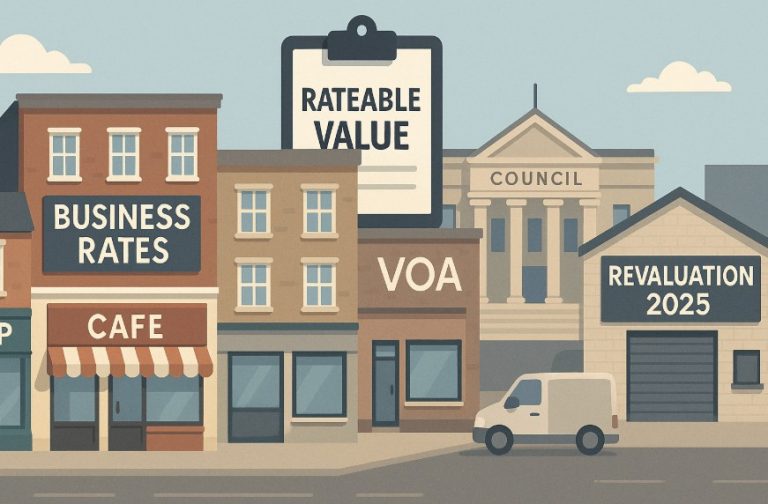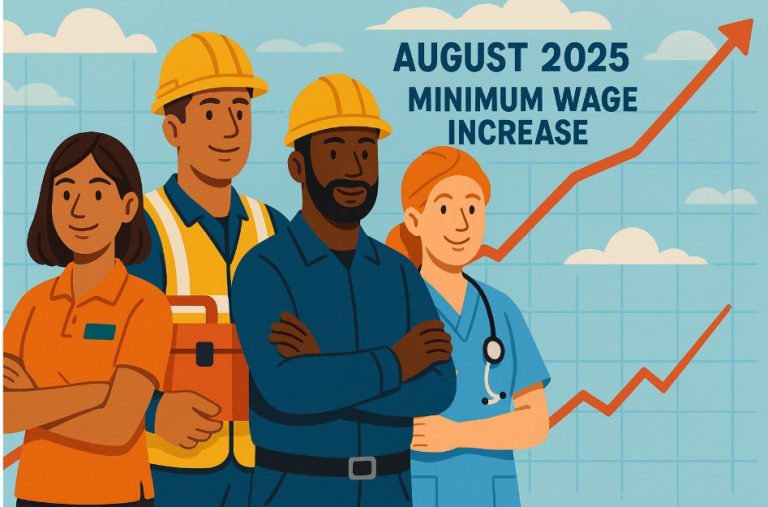What is the HMRC Warning on Savings Accounts?
Have you received a letter from HMRC regarding your savings account? Or perhaps you’re hearing murmurs about HMRC keeping an eye on interest earned through savings? If so, you’re not alone.
As more UK residents benefit from interest income, HMRC has stepped up its monitoring to ensure taxpayers are accurately declaring this source of income. But what exactly is the HMRC warning on savings accounts, and how does it affect you?
Let’s break it down.
Why Are UK Savers Receiving HMRC Warnings in 2025?
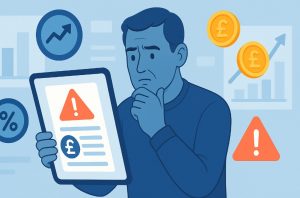
Despite the 2025/2026 tax year only just beginning, HMRC began sending out warning letters to thousands of UK savers as early as March 2025.
These alerts are catching many off-guard, particularly those with savings balances that generate over £3,500 in interest annually.
The essence of the warning is this: you may owe tax on your savings interest. If your interest exceeds the Personal Savings Allowance (PSA) currently £1,000 for basic rate taxpayers and £500 for higher rate taxpayers then the excess is taxable.
HMRC uses data reported directly by banks and building societies to assess whether an individual’s interest income surpasses these limits.
The warning isn’t a penalty or fine it’s more of a digital nudge. But it can eventually lead to a tax bill or a change in your tax code if action isn’t taken.
What Does the HMRC Warning on Savings Accounts Actually Mean?
In short, the warning is HMRC’s way of notifying you that your earned interest might no longer be tax-free. With rising interest rates and higher returns on savings, many UK savers have unknowingly breached the PSA threshold.
HMRC’s systems automatically compare reported bank interest with your existing tax records.
When a discrepancy appears, especially where no savings income has been declared, HMRC sends out warning letters, advising you to check whether you owe tax or need to update your tax return.
For many, the first time they hear of this issue is when they receive the letter, prompting thousands to go online in search of “what is the HMRC warning on savings accounts?”
When Does HMRC Send Out a Warning or Compliance Letter?

HMRC usually issues these letters in the weeks leading up to or shortly after the end of a tax year. In 2025, warnings began surfacing around March, just before the 2024/2025 tax year ended on April 6.
Key triggers include:
- Earning more interest than your PSA allows
- Banks or financial institutions reporting high interest to HMRC
- Interest income previously unreported surfacing during a tax review
- Multiple savings accounts that together breach your tax-free limit
Once flagged, HMRC may either adjust your tax code for the new tax year or request that you submit a payment or file a self-assessment tax return to cover the shortfall.
How Does HMRC Track Your Savings Account Interest?
HMRC doesn’t rely on guesswork they have access to real-time, automated financial data. All UK banks and building societies are required to report annual interest paid to account holders. This data is fed directly into HMRC’s digital system.
When your reported income doesn’t match your tax return, or if you haven’t declared savings income at all, HMRC identifies the inconsistency and sends out a warning or inquiry letter.
What Tax Rules Apply to Savings Interest in the UK?
If you’re a UK taxpayer, you benefit from the Personal Savings Allowance, which determines how much interest you can earn tax-free each year. But as savings rates rise, more people are inadvertently exceeding this threshold.
Tax allowances and rates for 2025:
| Tax Band | Personal Savings Allowance | Tax Rate on Interest Over Allowance |
| Basic Rate (20%) | £1,000 | 20% |
| Higher Rate (40%) | £500 | 40% |
| Additional Rate (45%) | £0 | 45% |
If your interest income goes over these limits, the excess becomes taxable, even if you’re employed and taxed through PAYE.
Do You Need to Inform HMRC About Your Savings?
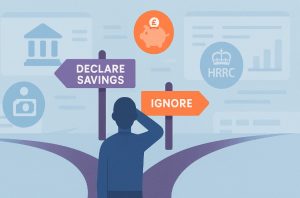
Whether or not you need to manually declare your savings interest depends on a few factors.
You may need to notify HMRC if:
- Your interest income exceeds your PSA
- You have savings and investment income over £10,000
- You’re already required to complete a self-assessment tax return
For most taxpayers, HMRC adjusts your tax code automatically to collect any due tax. But if you’re unsure whether you’ve exceeded your PSA, it’s crucial to check your interest statements or log into your HMRC personal tax account.
How Can You Avoid Receiving an HMRC Warning?
Avoiding an HMRC warning comes down to staying informed and proactive.
Here’s how:
- Monitor total interest across all savings accounts
- Know your PSA based on your tax band
- Keep accurate records of all earned interest
- Use online tools or calculators to estimate tax due
- File or amend a self-assessment return if needed
Also, remember: HMRC’s data comes from all your accounts collectively. Having three accounts earning £1,200 in interest combined can still trigger a warning, even if each one individually earns less than the PSA.
What Should You Do If You Receive a Letter from HMRC?

Receiving a letter doesn’t mean you’re in trouble but it does require your attention. These notices are issued to give you the opportunity to correct or report missing information voluntarily.
If you receive one:
- Read it thoroughly to understand the nature of the discrepancy.
- Log in to your online HMRC account to review your tax records.
- Check interest totals from all savings accounts over the last tax year.
- Determine if you owe tax, and if so, report it via self-assessment or by contacting HMRC.
- Seek advice if unsure especially if this isn’t your first notice.
The sooner you act, the less likely you are to face penalties or interest charges.
What Happens If You Ignore an HMRC Savings Warning?
While the initial letter may be informal or advisory, ignoring it can escalate the situation. Continued non-compliance could lead to:
- Penalties and interest on unpaid tax
- Formal tax investigations
- Potential legal action in extreme cases
- Complications with credit or financial applications
That’s why addressing HMRC warnings promptly and honestly is essential.
FAQs
How does HMRC know about my savings account interest?
All UK banks and building societies report annual interest to HMRC, allowing them to compare this data with your tax records.
What is the Personal Savings Allowance for 2025?
For 2025/26, it remains £1,000 for basic-rate taxpayers, £500 for higher-rate taxpayers, and £0 for additional-rate taxpayers.
Can I get penalised for not reporting interest income?
Yes, if HMRC identifies undeclared income, they may impose late fees, interest, and penalties depending on the circumstances.
What happens if I exceed my savings allowance?
Interest over the allowance is subject to tax. HMRC may change your tax code or request a payment through self-assessment.
Are ISA accounts exempt from HMRC warnings?
Yes. ISA interest is tax-free and not included in PSA calculations, making it exempt from such warnings.
Do all banks report to HMRC automatically?
Yes. Banks and financial institutions are legally required to report interest to HMRC annually.
How can I correct savings income already submitted?
You can amend your tax return through your HMRC online account or seek help from an accountant to file corrections.

